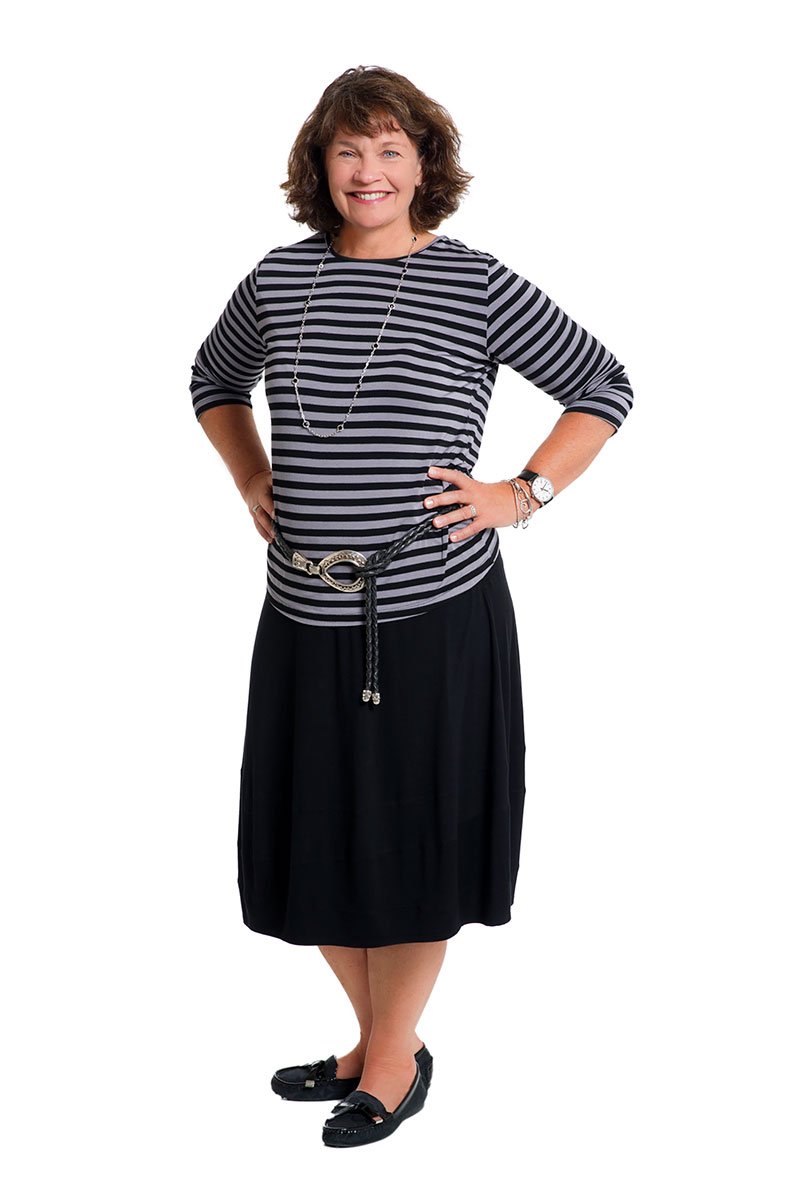 A registered nurse, University of Washington grad and frequent lecturer, Julie Metzger is known around town as the “Puberty Lady.” For more than two decades, her Great Conversations classes for parents and preteens (she teaches the female side of the puberty equation) at Seattle Children’s and other area hospitals have been a rite of passage for thousands of Puget Sound families each year. Great Conversations also offers classes in friendship, communication and decision making. The co-author of Will Puberty Last My Whole Life?, Metzger is also the mother of two daughters and a son, all in their 20s.
A registered nurse, University of Washington grad and frequent lecturer, Julie Metzger is known around town as the “Puberty Lady.” For more than two decades, her Great Conversations classes for parents and preteens (she teaches the female side of the puberty equation) at Seattle Children’s and other area hospitals have been a rite of passage for thousands of Puget Sound families each year. Great Conversations also offers classes in friendship, communication and decision making. The co-author of Will Puberty Last My Whole Life?, Metzger is also the mother of two daughters and a son, all in their 20s.
Did you always know you wanted to become the “Puberty Lady”?
My father is a urologist, my mother is a nurse. I grew up in a family that thought nothing of saying “vasectomy” or “penis” at the dinner table. Adolescents are my passion. In grad school [working on a study of women’s health], there were questions about who taught you about your period and did it make a difference? I remember laughing out loud thinking, picture all those conversations. Some were a torture test, some lasted one second, some six hours, some were in total embarrassment, some were critical, some were completely mythical. And wouldn’t it be great if there was a place you could sit together and hear the truth? I thought this would be so great for parents and kids. And I thought: That’s me. I could do that.
 I took your class last fall with my daughter; so much of it is really about the parent-child relationship. How can we keep close and positive at the time our preteens need and want to separate from us?
I took your class last fall with my daughter; so much of it is really about the parent-child relationship. How can we keep close and positive at the time our preteens need and want to separate from us?
They’re looking for separation, but they’re not looking for you to step away. Our job as parents is to stay close while standing back. And that’s challenging, a quantum physics thing — how can you be in that place and yet not be in that place? I wish parents would do more “Hmmm, tell me more about that” rather than a quick checklist of “Do you have your soccer stuff? Is your homework done? How was your day?” That is not a conversation.
You also say that we as parents need to have "200 one-minute conversations" with our kids about puberty and sex, instead of the one "big talk." Why?
The more sensitive the topic, the more kids will retain it when it’s woven into their life and not a one-shot deal. We really only have the courage and the retention of about a minute — not 20. You’re building a house over time with individual bricks. You honor the growth of your child with each of those bricks.
You take anonymous questions from the group and then answer them. What question most surprised you?
I can honestly say I have never been surprised. I’m assuming in any single class someone is thinking I’ve been waiting for this moment my whole life, and someone else is thinking This is my worst nightmare. There’s a mom thinking to herself I’m going to be offended if she says “sex” out loud, and another who will be offended if not. I could hand you 250 questions [from girls] that could just make you weep with the vulnerability: “Did you say your period is four to seven days, or 47 days?” Or: “Why are we talking about this? Signed, Ms. Nobody.” I love the people and so respect the relationships and the courage it takes to come.
Listen more, speak less. Staying close requires that.
What’s changed in the two decades since you started this? Parent expectations? Kids’ questions? Attitudes?
If you had asked me up until three or five years ago had there been any difference, I would have said “nothing.” Then we started to feel the openness and hunger from people to understand both gender and sexuality, and homosexuality and gender. What makes a man or what is a man? What is a girl? It’s an enormous shift.
If you could impart only one piece of advice to a parent of a preteen, what would it be?
Listen more, speak less. Staying close requires that. Parents tend to talk a lot and quickly give their opinion.
What about to the preteen?
The person who brought them to that class wants very much for this whole puberty thing to go well for them. They are not alone. They have adults invested in their lives. And other kids feel just like they do.
What was most difficult for you to talk about not as Puberty Lady, but as Mom?
No one subject. We certainly butted heads. You set a certain bar, rule or expectation and your kid matures beyond that, but you’re [still] holding on to that one thing. That creates a control thing. I found myself realizing, “Hey, they can handle that better than I thought.”
Anything new brewing for you or Great Conversations?
I have a new book called This Is Me, a journal tailored to preteen girls in fifth through seventh grade. It’s filled with writing prompts and creative activities; it’s a way to process what’s happening to them.











